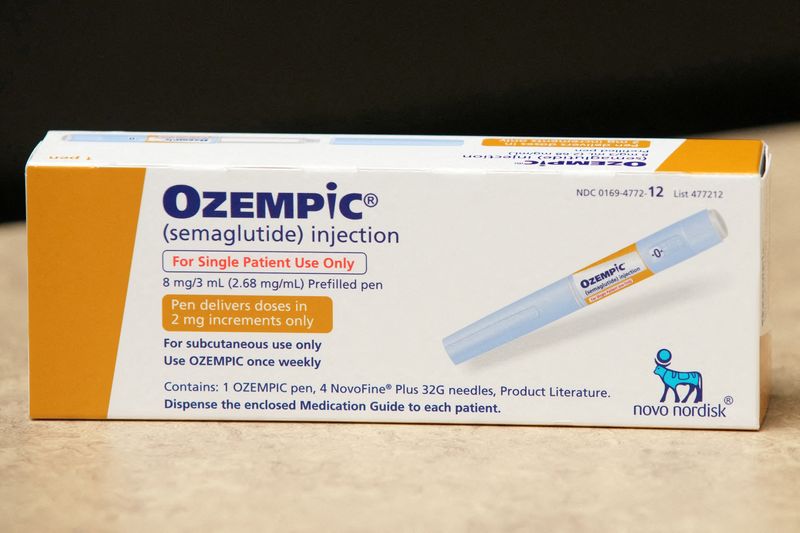Investing.com — Weight-loss medications like the popular versions made by Denmark’s Novo Nordisk A/S (CSE:) and US peer Eli Lilly (NYSE:) are the “most compelling story within the healthcare sector,” analysts at Wells Fargo said.
The GLP-1 class of drugs includes blockbuster brands like Novo’s Ozempic and Wegovy and Eli Lilly’s Mounjaro and Zepbound.
According to Harvard University, GLP-1 treatments aim to help patients with diabetes by helping them release insulin and control blood sugar levels. They can also act on the brain to reduce hunger and delay the emptying of the stomach, possibly leading to weight loss.
Since releasing their GLP-1 offerings, both Novo and Eli Lilly have registered record profits. Some analysts have estimated that total annual global sales for such medications could be around $150 billion early in the next decade, Reuters reported.
Novo and Eli Lilly have even struggled to keep up with the soaring demand. Because of this shortage, US regulators have allowed businesses, including telehealth groups like Noom and Hims Hers Health (NYSE:) to make compound versions, or close recreations of brand-name medicines. Shares in WeightWatchers, also known as WW International (NASDAQ:), spiked this week after the company announced it would offer a compounded version of Novo’s Wegovy.
Approximately 74% of adults are considered to be either overweight or obese in the US, with 42% of that group suffering from obesity, the Wells Fargo analysts said in a note to clients this week, citing data from the Centers for Disease Control and Prevention.
“Looking forward, the market for weight-loss drugs should continue expanding rapidly, but we believe cost-benefit economics will be increasingly important,” the analysts wrote.
In particular, they noted that the costs for enrollees in Medicare — the US federal health insurance program for people aged 65 and older — are typically far higher for those with obesity than those without such a dianosis. The trend offers “strong support in the cost-benefit equation for these drugs and will be a critical factor supporting the expanded usage of GLP-1s going forward,” they added.
Meanwhile, demand could further be bolstered by recent clinical data which indicates that GLP-1 drugs may have favorable effects on other health issues like cardiovascular risk, sleep apnea, and dementia, the analysts said.
They reiterated a “neutral” stance on the overall healthcare sector and a “favorable” outlook for the healthcare equipment and supplies, life sciences tools and services, and managed healthcare sub-sectors.
Read the full article here


